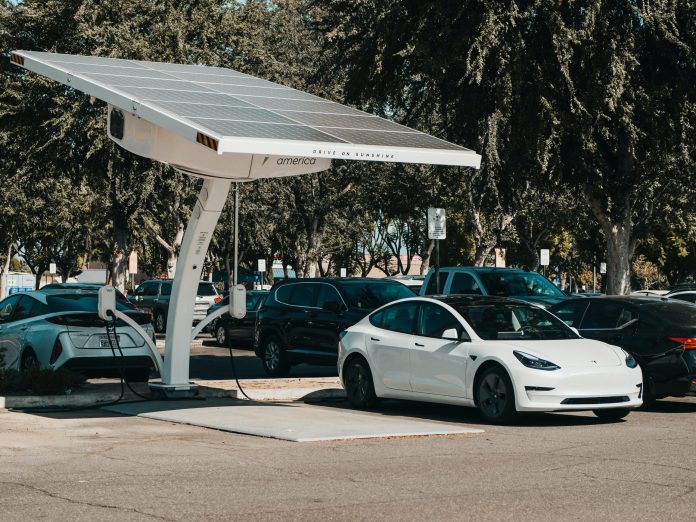By SWNS Staff
NEWS COPY w/ VIDEO + INFOGRAPHIC
According to a new research study, nearly 2/3 of Americans think drones will deliver their takeout by 2027 (63%).
The survey of 2,000 adults also found that 62% believe the majority of cars on the road will be electric by 2030.
In fact, three in four feel technology has come further than they’d ever expected during their lifetime (76%).
Although 65% believed during their childhood that the 2020s would look more like futuristic shows/movies, 70% now admit technology like flying taxis or jetpacks are just too unrealistic to become viable options.
Still, two-thirds expect transportation will soon look different than it does now (67%), citing possible advancements like space trips/tours, hyperloop travel, autonomous airplanes and a transatlantic tunnel.
Commissioned by Solvay on behalf of OnePoll, the survey also found that more than half of respondents would be interested in taking leisure trips to space if given the opportunity (56%).
While 44% claimed they’re informed about the newest developments in travel technology, an even larger percentage would be interested in learning more about the science behind these advancements (62%).
“Today, there’s no bigger challenge than creating a sustainable future for transportation that provides shared value for all,” said Mike Finelli, President of Solvay Growth Initiatives. “The solutions to humanity’s major challenges will not only be led by scientific breakthroughs, but by understanding the long-term impacts of those breakthroughs.”
Americans may even be ahead of the curve, with 68% of respondents saying they see themselves purchasing an electric vehicle next like a car (54%) or bike (43%).
Eighty percent said increasing prices at the gas pump contributed to pushing them towards the new change, and 68% brought up their own efforts to be more sustainable.
They also felt that steps like increasing reliability and reducing repair costs (47%), implementing more charging stations (40%) and reducing charge time (37%) are helping get people on board with electric vehicles, or EVs.
Two-thirds of respondents are concerned about the transportation industry’s impact on climate change, but many think we’re moving in the right direction as 62% believe the majority of cars on the road will be electric by 2030.
Most respondents said that overall, they’re impressed with how much cars have developed during their lifetime (68%).
And while many would use more mass public transportation than cars if it were more environmentally friendly (63%), even more respondents said they would value the convenience of faster transport (74%).
Those who take public transportation do so for convenience (42%) and proximity to their destination (42%) above all.
“The EV battery supply chain that has been built over the last 20 years will not be the same one that carries us through the next 20,” said Finelli. “With demand for EVs growing rapidly, fundamental changes are needed to address the ethical and sustainable challenges in creating EV batteries. It will take several solutions working in parallel. Governments, automakers, and materials providers are all going to have to work together to ensure the EV revolution is as green as promised.”

